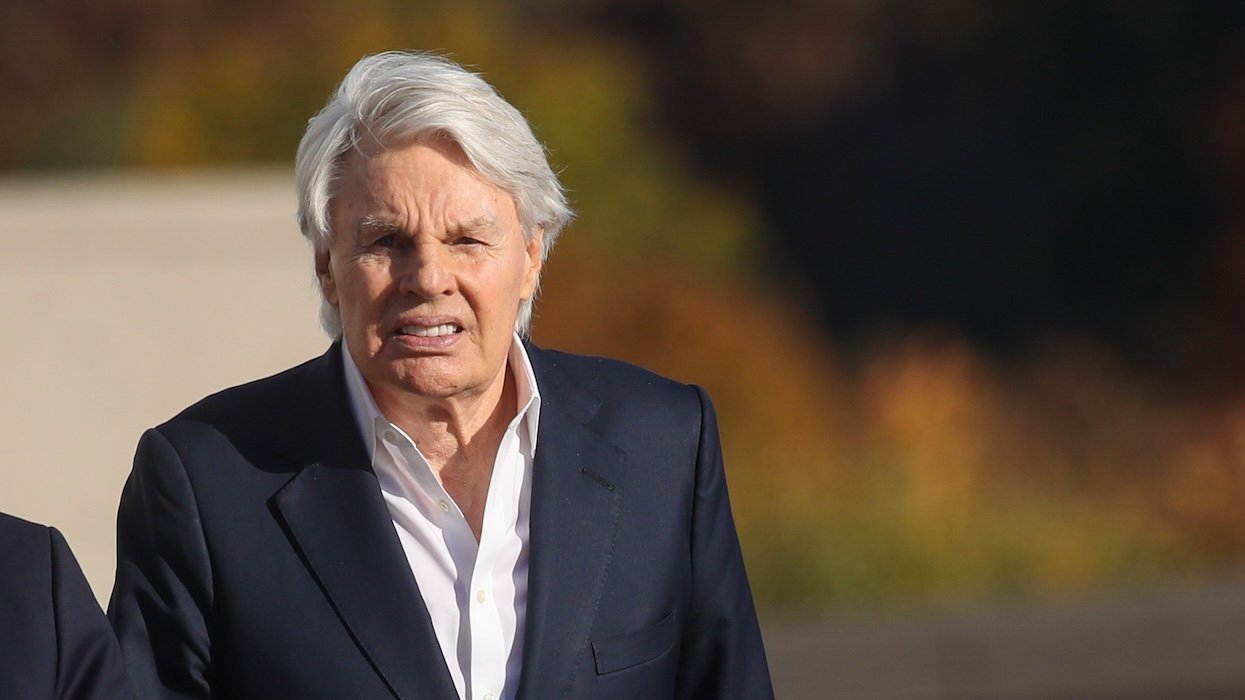Although the New
Hampshire legislature repealed a ban on adoptions
by gays in 1999, gays and lesbians in some
counties cannot adopt a partner's children because of
varying interpretations of the law by probate judges.
Single men and women, gay or straight, are allowed to
adopt children in all counties under state law.
Probate court judges in Hillsborough, Merrimack,
Grafton, and Cheshire counties do not allow gay or
lesbian couples to adopt children together or allow
one to adopt the child of the other, because the law
specifies that married couples and single adults can
adopt. Gays and lesbians are not allowed to marry in
New Hampshire.
In the state's other six counties, judges have
interpreted adoption law and court rulings more
broadly to allow adoptions by gay and lesbian partners
as long as they can show they have a stable and loving home.
"I think all judges in good faith are trying to interpret
the statute correctly," said probate judge Richard
Hampe, who sits in Merrimack County. "It's just that
the statute is not all that clear. It really should be resolved."
According to the Concord Monitor, there
are no bills pending to clarify the law. In fact,
several lawmakers who oversee adoption laws told the
newspaper they had no idea gay couples were being treated
differently depending on where they live. Nor has anyone
appealed to the state supreme court.
Betsy Peabody of Concord said she and her
partner of 13 years, Dianne Harhigh, considered an
appeal, but were afraid the high court would uphold
Hampe's ruling that Peabody, the birth mother, would have to
give up her parental rights before Harhigh could
adopt. The couple's daughter is almost 5 years old.
"For a long time when the law [banning adoption
by gays] was overturned, there was a lot of talk about
how awesome that was," Peabody said. "That was going
to be the door in for our kids having two legal
parents. But [it] doesn't apply to two-parent adoptions."
Judges on both sides of the question point to a
1987 state supreme court ruling by former state
justice David Souter, who ruled that a divorced couple
living in separate homes could not adopt a child together
because the adoption law is intended to give children
one home "that is unified and stable." "Respect for
such intent precludes our reading [the law] so as to
authorize a joint adoption application from two
unmarried adults," Souter wrote.
Judge John Maher, head of the state's probate
courts, said he will allow unmarried couples to adopt
a child jointly or allow one partner to adopt the
child of the other partner as long as an independent home
study concludes the child will be in a safe, stable,
and loving environment. "Whether they are homosexual
or heterosexual is irrelevant to me," Maher said.
Lawyer Susan Hassan, who represented Peabody and
Harhigh, said that when her clients live in counties
that do not allow gay couples to have equal parental
rights, she advises them to pursue joint guardianship.
Guardianship gives both partners equal parental rights in
case of a split and it is recognized in all 10 counties.
But adoptions give children additional rights to
share disability, health, and inheritance benefits
with both parents. Lawyer Ann McLane Kuster said
adoptions also provide children with more stability.
"Guardianships come and go," she said. "The court can change
guardianship but not adoption."
Harhigh, who quit her job to raise the couple's
daughter, said the family finds guardianship
offensive. The couple must file a report with the
Merrimack County probate court each year showing they are
giving their daughter a good home.
"I can raise my daughter, but I can't adopt
her," Harhigh said. "I could adopt a stranger but not
my daughter." (AP)


















































































